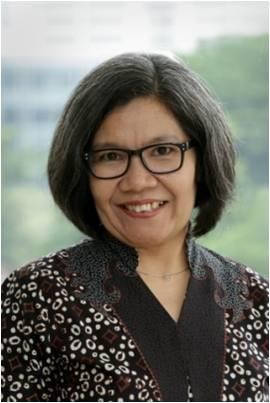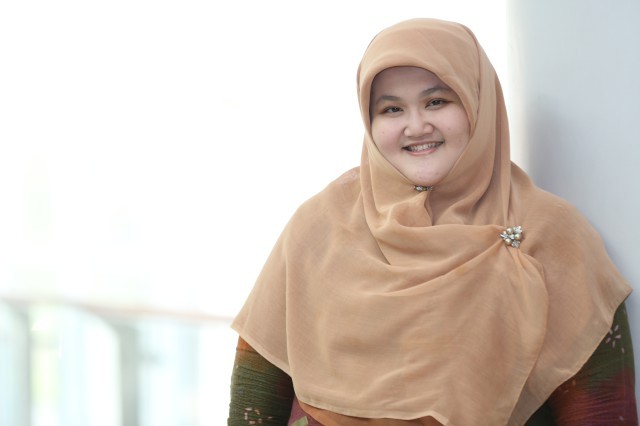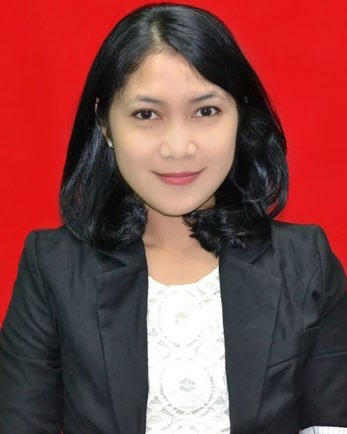Case Document
JALES VEVA JAYA MAHE: A CASE OF INDONESIA FISHERY SUPPLY CHAIN
The case is about Fishery Supply Chain in Indonesia. Being the largest archipelago in the world, Indonesia has a tremendous opportunity in its marine and fishery sector. With the President Joko Widodo’s direction in stressing the importance of Indonesia’s fishery and the breakthrough policies set by his minister of Maritime Affairs and Fisheries, Mrs. Susi Pudjiastuti, Indonesia Fishery industry has entered an interesting era.
Yet, fishery supply chain is not easy. It has its own challenges despite tremendous opportunity to add value for all the stakeholders along the chain. The ministry of Maritime Affairs and Fisheries has set some high level policies that should be a good base for improving the fishery industry in strategic level. To materialize the benefits, it must be followed with a good supply chain analysis and initiatives.
MARTHA TILAAR SPA EXPRESS (A) – A NEW SPA EXPERIENCE
The raising of middle class in Indonesia who is remarked by more active, simple, concern about health and appearance brings opportunity for Martha Tilaar Group to serve this class with different new beauty service concept.
“The urban people lifestlye spend most of their times at work or mall. This lifestyle brings the opportunity to introduce new quality concept of spa treatment offered more to mass market”, said-Wulan Tilaar
Martha Tilaar Spa Express (MTSE) fulfills the needs of such middle class customer by offering a number of relaxation of spa treatment. Eventhough Express means shorter time than regular time spa treatment, but Martha Tilaar Express is supported by professional and skillful therapist and used the high quality spa treatment product. By opening the Martha Tilaar Spa Express in malls, it is easier for customers or spa lovers to enjoy the service.
PT ODG INDONESIA: MEASURING THE VALUE OF AN INTANGIBLE ASSET COMPANY IN A MANAGEMENT BUY OUT
The target asset for this research is PT.ODG Indonesia (Company), a foreign investment company that was established in 1991, owned majority by a foreign investor of O’Donnell Griffin Australia (80%) (major electrical contractor in Australia) and its Indonesian partner, PT. Anugrah Daya Pratama (20%) in its business of construction service in mechanical, electrical, and fire protection. Since it was established and operating until 2009, the company has experienced several merger and acquisition in the corporation level of the foreign shareholder, which latest control and owned by Tyco Corporation, a Top 500 fortune U.S Company.
In 2007, the company was approached by Tyco Corporation and was asked to signed on a non-disclosure agreements in a lead for selling the business through a bidding over several companies including, Glendale, which were financially ran by a private equity investor of Aurous Capital, and ODG Australia themselves in hoping to fully owned the company, and other companies as well. Over several months, Glendale has reached in becoming its top bidder and working over various transactions in determining their SPA agreements with Tyco, but was later withdrawn in buying the company. Under a new management of Tyco, the company are able to maintain good work relationship to at a point of 2009, where Tyco has decided to sell ODG once more with a new other option of a Management Buyout (MBO). Therefore, once again, Tyco held a bidding to several companies, including PT.ODG Indonesia where their relationship lead to difficulties to one another as ODG position themselves as a buyer and an employee that they also have to manage documents for other potential buyers.
BORNEO ORANGUTAN SURVIVAL FOUNDATION (BOSF): BUILDING TRUST IN DIVERSE STAKEHOLDERS
The case demonstrates the importance of a Value Proposition for a Non-Profit Organization in shaping the organization in order to prevent them from escalating into a crisis and improve performance. The main purpose of the case is to foster a thoughtful organizational transformation through the development of an organization value proposition.
While many cases shown the importance of a value proposition from profit organization. This case illustrates that the concept of value proposition can be used to derive a purposeful organizational change and increase performances.
ETHICAL CONCERNS FOR ELECTRONIC ARTS: A CASE STUDY OF PUBLIC RELATIONS REJECTION IN THE COMPUTER GAMES INDUSTRY
GARUDA INDONESIA: WINNING CUSTOMER'S HEART THROUGH GARUDA INDONESIA EXPERIENCE
March 2005, it had never been easy for Emirsyah Satar as he appointed as the CEO of Garuda Indonesia when the company’s total debt reached up to US$845 million with a negative cash flow, with only 60% load factor level, and on time performance (OTP) away below the standard of 85%. In order to achieve the Quantum Leap 2011-2015, the transformation is highly needed. The things are more complicated when several Indonesia NGOs, such as Kontras and Jaringan Komunitas Aktivis HAM (Network of Human Rights Activists) forced Garuda Indonesia to unravel the case of Munir, Indonesian human right activist who was killed in the Garuda plane during the flight from Jakarta to Amsterdam. At that time, the fate of Garuda Indonesia as Indonesia’s Flag Carries was still unclear, and the road to be a reputable airline seemed long and endless, will Emir able to gain the trust back from the customer and develop the service of Garuda Indonesia by offering new experience to the customers?
PT AITI PRIMA INDONESIA (AITINDO): BUSINESS TRANSFORMATION DECISION – A SUCCESS OR FAILURE
It was end of November 2010 when Raymon Setiadi restlessly starring at the ceiling of the boardroom in his office. In couple hours he would has an important meeting with three colleagues discussed about AITINDO performance, their startup company. It would be a serious discussion since the profit of company was not good enough although it has been running for 5 years. Moreover, his greatest concern was the condition of company that still has no specific core business. He felt they were not strong enough in business competition especially facing the rapid development in digital world and the change in consumer behavior. The company must establish the right business model and refine some key elements to successfully achieve the target and ensure the company's sustainability. Raymond rushed took his laptop and walked into the boardroom while still thinking about what to do to ensure company's sustainability. Another question was still remaining; what business model is appropriate in line with the development of digital technology?
PT TINAMITRA MANDIRI: WHERE DO WE GO FROM HERE?
Tinamitra Mandiri was established in 2010 in Jakarta with the focus of sustainable development for better life. The company’s main vision is to become a leading provider of clean energy and major player in utilization of alternative energy resources as well as pioneer for sustainable community development projects. Within the past decade many private companies have acted upon this opportunity for the uprising need of natural gas, as a relatively cheaper alternative fuel compared to petrol by bringing the natural gas in other medium form, such as through CNG (Compressed Natural Gas). Tinamitra Mandiri’s CNG Businesss under the name of Tinagas is a subsidiary focusing on providing equipments and natural gas fuels. For Indonesia in particular, natural gas has become an increasingly important resource and a global commodity. As Tinamitra Mandiri plans to strengthen its foothold in Indonesia’s energy market, it will be very likely for them to keep encouraging the conversion of fuel source in the market through variety of strategies. Changes in government regulations and market condition may remain to be the most deciding factors of the success of natural gas marketing efforts in Indonesia. Given its low penetration and low infrastructure coverage, it remains to be seen as how natural gas infrastructure development can support natural gas industry in Indonesia. Nevertheless, the gas industry market remains a viable and potential business opportunity waiting to be explored.
E-MONEY PENETRATION IN INDONESIA: THE CHALLENGE OF CONSUMER BEHAVIOR AND MISCONCEPTIONS
As Indonesian central bank, Bank Indonesia launched a campaign to create a cashless society. E-money is a sort of solution for the ‘un-bankable’ society of Indonesia, and for those who often conduct banking transactions, e-money can play a role as complementary of other non-cash media such as credit cards, debit cards, checks, etc.
This campaign was based on the fact that Indonesian people do more often conduct non-cash transactions compared to people in other ASEAN countries, which accounts for more than 50%. Therefore, Bank Indonesia needs to encourage the use of non-cash alternatives in Indonesia.
By encouraging non-cash transactions, the country will be able to reduce the use of currency, which makes it more efficient and saves the budget of money printing and storing. Bank Indonesia also believes that non-cash transactions can be successfully implemented because it is more secure, more practical, and more efficient. Besides, by implementing non cash-transactions, Bank Indonesia will be able to control the circulation of money in the community.
In Indonesia, the e-money market is still wide open, and there are still many potential usages that have not been explored. The actual growth rate of e-money use has been significant over time, both in the number of cards issued and in the transactions using e-money. Each year e-money transactions have grown by 120 percent.
However, according to data from Bank Indonesia, until now growth in the use of e-money is still slow, which is approximately 5 percent. Growth per year is only approximately 0.3 percent to 0.5 percent. Growth is still considered slow because there are still many people in Indonesia who do not use e-money, whereas only approximately 9 percent of the Indonesian population uses e-money.
According to the Indonesian Central Bank (2014), electronic money is a means of transaction/payment that has the following elements: (1) it is issued based on the value of money deposited by users with the issuer; (2) the value of the money is deposited electronically in a medium such as a server or chip; (3) it is used as a means of payment with merchants who are non-issuers of electronic money; and (4) the value of the electronic money deposited by the user and managed by the issuer does not play the role of savings, as defined in banking rules and regulations.
The main purpose of the created e-money is to provide convenience in the transaction; the user does not need to spend cash and wait for change when shopping. In addition, the time required is quite short because the cash does not have to be counted, and signatures or PIN numbers for regular use debit and credit cards are not required.
Several types of transactions are covered by e-money, (1) daily transactions to a payment on a convenience outlet stores, bookstores, gas stations, and fast food restaurants, (2) e-commerce transactions via online shops, (3) transactions for public transportation: buses, commuter rail lines and highways. This study discusses the two types of transactions, namely the use of e-money for daily transactions in physical outlets and transactions in public transportation.
At the beginning, the e-money player is very eager to communicate with prospects and customers in its own way, but this has not been an effective way of communication. Consumers do not gain a full understanding and therefore cannot view as a whole the advantages of e-money as a payment instrument that is easy and practical.
The use of e-money for transportation was more successful than for transactions at the outlet. The reason is because consumers are forced to switch to this payment instrument en masse, and it is filled with government regulations. However, in practice, there are many consumer complaints that are perceived, not because of technical problems with the operation of e-money cards but rather due to a lack of understanding, which has an impact on the interest of consumers in continuing to use this payment tool.
PT. KAI: BUSINESS & PEOPLE TRANSFORMATION - THE LEADERSHIP ROLE OF IGNASIUS JONAN
The key operation of PT. Kereta Api Indonesia is now more on the customer perspective such as better customer service, competitive price, on time schedule and safety. One of PT. Kereta Api Indonesia’s services is on how customer can buy their ticket faster and convenience. Currently, customer can buy their ticket through many channels of ticket distribution in mini markets, even 90 days before the D-day. People can now buy their ticket through a franchise store and also through online payment that allows customer to pay directly through the ATM. This services has resulted many achievements and awards in 2013 on various area, from marketing, GCG, IT and Jonan appointed as The Best CEO of State-Owned Enterprises. PT. KAI has change from an old perception into a brand new experience of a real customer oriented services. The main transformation element was the leadership role from Jonan during 2009-2014. He mostly touched the operational aspects which focus more on the customer satisfaction. The transformation of PT. Kereta Api Indonesia would be a very good example on how a company can have its own turnaround point and transformed to be a better and performed company with a strong leadership.













